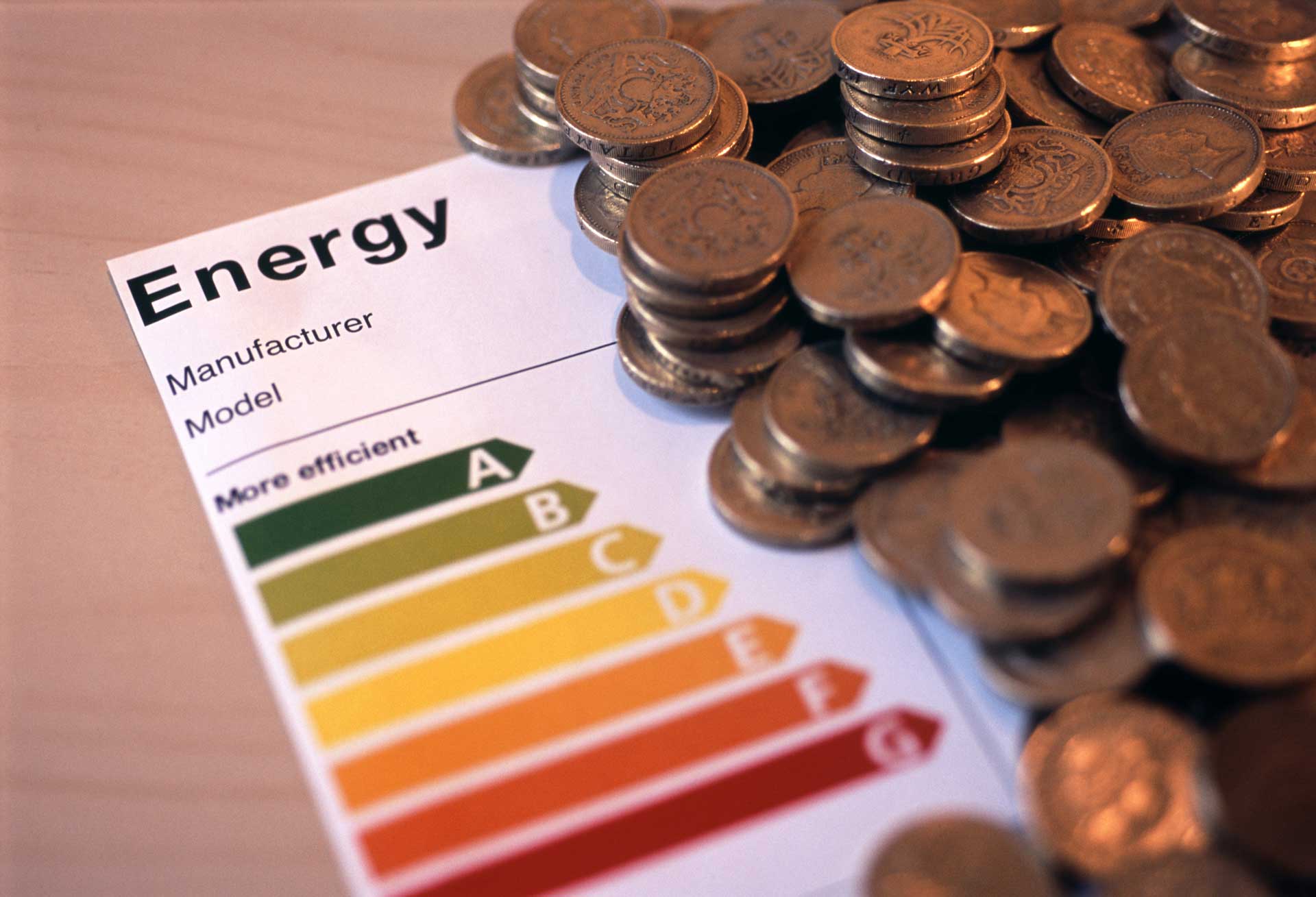
IT'S NO SECRET THAT home-heating costs are expected to soar this year
and keep on soaring. Fortunately, tenants can help cut their heating bills by
taking a few relatively painless steps.
Space heating represents about 49% of the energy use in homes. The other
51% is attributed to household appliances, lighting and water heating.
You can save money by practicing energy conservation.
Heating.
1. Turn your thermostat down by 1 degree could cut your heating bills up to 10% and typically saves around £55 per year.
2. If you have a programmer, set your heating and hot water to come on only when required than all the time and set them to turn off 20 minutes before you go to bed or leave home.
It's hard to believe, but appliances and lighting account for 28% of the typical household's annual energy use.
Here's what you can do to conserve:
Lighting.
3. Replace incandescent light bulbs with compact fluorescent bulbs or LED's. On average, they use up to 66% less energy.
4. Keep bulbs clean. Dust can cut light output by as much as 25%.
5. Always turn the lights off when you leave a room.
6. Always use energy saving light bulbs. They last up to ten times longer than Ordinary light bulbs and using one can save you around £40 over the life time of the bulb.
Cooking.
7. When preheating an oven, don't let it sit empty for longer than necessary, and don't open the door to check on food. Every time you do that, you lose 25% of the heat.
8. Use a microwave oven instead of a regular oven. You'll burn about 40% less energy.
9. Keep the inside of your microwave oven clean. It will cook your food more efficiently.
10. Use the smallest saucepans possible. It takes less energy to heat them.
11. Use lids. They help the food cook more quickly by keeping steam inside.
12. Use glass or ceramic pans in ovens. They heat faster than metal pans.
Washing machine, tumble dryer.
13. Wash and dry full loads, one full load uses less energy than two half loads.
14. Don't over-dry clothes.
15. Keep the dryer's lint filters clean.
16. Wash laundry in cold water instead of hot, unless you're dealing with very dirty loads.
17. Don't add wet items to a load in the dryer that has already been started.
Dishwasher
18. If you have an older-model dishwasher that doesn't have a booster heater (a device that heats up the water to the temperature the dishwasher needs to clean the dishes), you should leave the water heater set to 60 degrees to make sure the bacteria on your dishes are good and dead.
19. Wash only full loads. It costs exactly the same to wash one dish as a whole load.
20. If your dishwasher has an air-dry feature, use it.
21. If you wash by hand, rinse dishes in groups rather than one at a time, and don't leave the water running.
Refrigerator.
22. Check refrigerator temperatures by putting one thermometer in a glass of water in the center of the fridge and another between packages in the freezer. You're losing money if temperatures are lower than 37-40 degrees for the main compartment and 0-5 degrees in the freezer.
23. Cover and wrap food. Uncovered food and liquids release moisture and drive up electricity costs.
24. Let hot food cool before putting it in the fridge. This way the fridge will use less energy to cool it down.
25. Keep the freezer full. It's more efficient than an empty freezer. If necessary, fill up the space with plastic containers filled with water.
26. If you have a second fridge that's not being used, unplug it. It costs unnessary energy and money to keep it plugged in.
Water heating.
Water heating is the third-largest money-eater in your home, accounting for 16% of annual energy consumption. Remember: you're paying for the water and you're paying to heat it. You should:
27. Set your cylinder stat at 60 degrees C.
28. Insulate your storage water heater tank. You'll save 4% to 9% on water heating costs.
29. Drain the sediment from the bottom of the water heater tank every one to three years.
30. Install low-flow shower head and taps. They use one-third to half the water used by regular shower heads. You can cut your water use and water heating costs by an average 15% to 30%.
31. Take short showers (and preferably, no baths -- showers use less energy and less hot water).
Curtains.
32. Close your curtains at dusk to stop heat escaping through the windows and check for draughts around windows and doors.
Appliances.
33. Do not leave appliances on standby.
34. Do not leave laptops and mobile phones on charge unnecessarily.
Kettles.
35. Only boil as much water as you need (but do remember to cover the elements if you're using an electric kettle).
Hot water taps.
36. A dripping hot water tap wastes energy and in one week wastes enough hot water to fill half a bath, so fix leaking taps and make sure they are fully turned off.